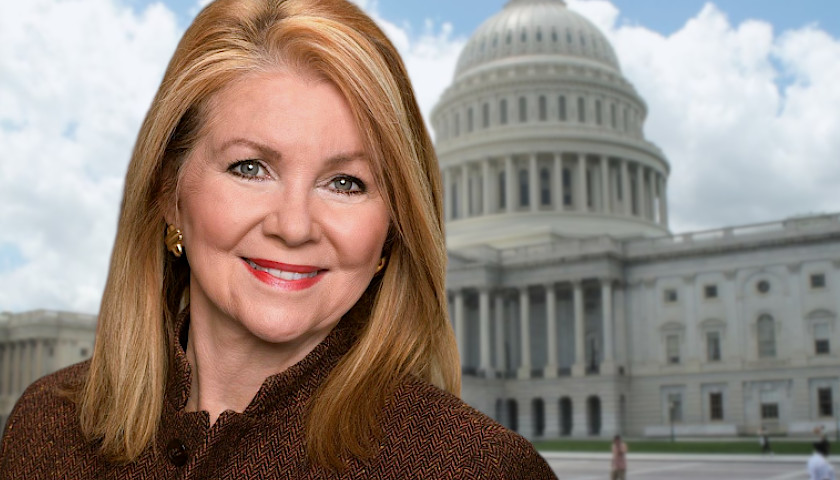U.S. Senator Marsha Blackburn (R-TN) is co-sponsoring a reform bill tackling Big Tech’s censorship and “fact-checking” policies. The bill, “Online Freedom and Viewpoint Diversity Act,” is a reform of Section 230 of the 1996 Communications Decency Act (CDA).
Section 230 hasn’t been updated in nearly 25 years. The goal of the reform is to “clarify the original intent of the law and examine Big Tech’s content moderation practices.”
The original language of the bill provides protection for something called “Good Samaritan” material censorship.
“(2) CIVIL LIABILITY: No provider or user of an interactive computer service shall be held liable on account of – (A) any action voluntarily taken in good faith to restrict access to or availability of material that the provider or user considers to be obscene, lewd, lascivious, filthy, excessively violent, harassing, or otherwise objectionable, whether or not such material is constitutionally protected…”
The reform seeks to narrow the open-ended phrase “otherwise objectionable.” The updated bill would specify “objectionable” material as that which promotes terrorism, self-harm, or unlawfulness.
Other sponsors of the bill are Senators Roger Wicker (R-MS) and Lindsey Graham (R-SC).
Legislative discussion on Section 230 reforms long preceded this election year. A comprehensive repeal of the CDA is out of the question – many legislators agree it would render the tech industry vulnerable to legal battles. In order to limit liability, the tech industry would likely exert more censorship.
In their latest fact sheet explaining the reforms, Blackburn explained the necessity for limiting arbitrary censorship.
“The polished megaplatforms we associate with online research and debate exert unprecedented influence over how Americans discover new information, and what information is available for discovery. Moreover, the contentious nature of current conversations provides perverse incentive for these companies to manipulate the online experience in favor of the loudest voices in the room. There exists no meaningful alternative to these powerful platforms, which means there will be no accountability for the devastating effects of this ingrained ideological basis until Congress steps in and brings liability protections into the modern era.”
Senator Blackburn also criticized Big Tech for censoring the New York Post after it released details of emails indicating a potential scandal involving Democratic presidential candidate Joe Biden, his son Hunter, and the Ukraine.
Last week, Twitter locked the newspaper’s account after it released the story. Facebook placed their own restrictions on the story initially, even limiting users from sharing the article.
The bill will appear before the U.S. Senate Committee on Commerce, Science, & Transportation next week on October 28.
– – –
Corinne Murdock is a reporter at The Tennessee Star and the Star News Network. Follow her latest on Twitter, or email tips to [email protected].






Empty Suit Blackburn knows this bill is DOA when it gets to the House. Why waste time on such legislation? Because she needs a faux record to stand on when it comes to her next re-election bid.
Freakin’ worthless empty suit………